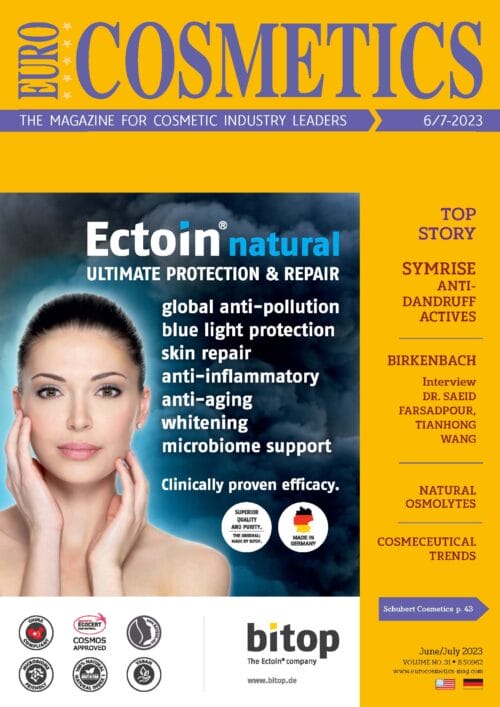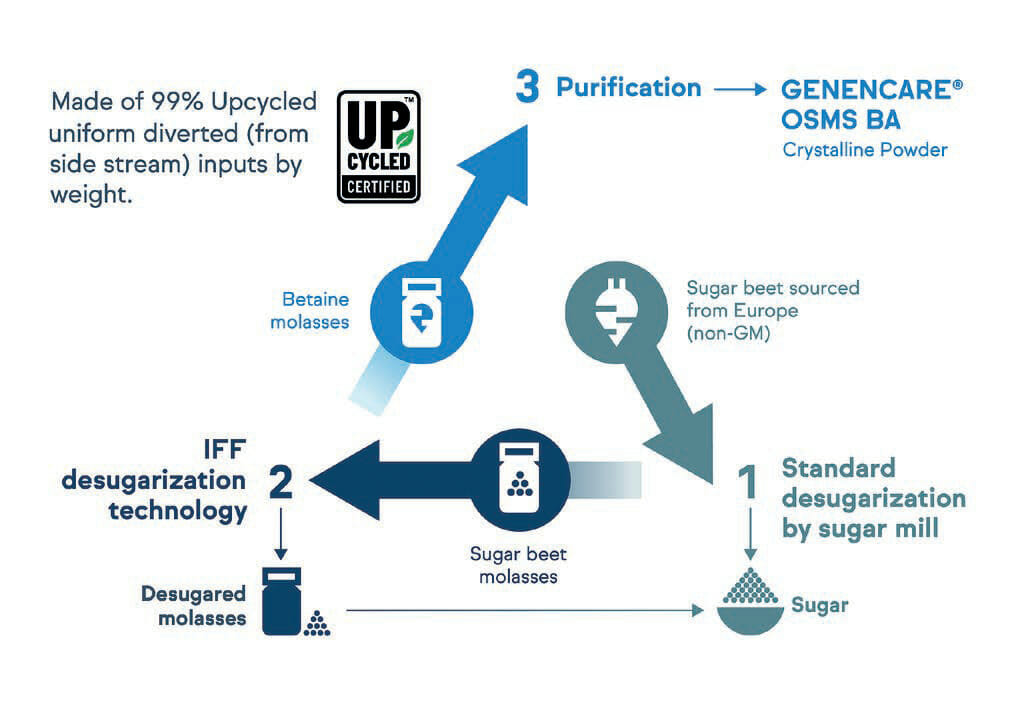
Water is key for healthy skin. It supports proper skin metabolism and maintains tissue elasticity and suppleness, and proper skin barrier functions. In fact, our skin is comprised of 70% water, so it’s no wonder that moisturization and hydration are some of the most established claims for recent product launches in beauty and personal care1.
When formulating products with moisturization and hydration claims, industry players must adapt to growing demand for products with natural and sustainable ingredients, but also keep in mind that efficacy is non-negotiable for consumers. Efficacy is one of the key factors driving purchase decision and repeat purchase.
Selecting the right ingredients is important to creating natural and sustainable moisturizing skin care products that still deliver on performance.
A way with water
When the skin is stressed by external aggressions (UV radiation, heat or cold environments), the water balance of skin cells is disturbed. Nature has developed a magnificent mechanism to manage the water balance, reduce water stress and protect the living organism.
The process by which water management in an organism and in skin are controlled and regulated is called osmosis. Osmosis is the spontaneous net movement of solvent molecules through a semipermeable membrane into a region of higher solute concentration. Osmosis provides the primary means by which water is transported into and out of cells.
Osmolytes occur naturally in all living organisms and, as their name suggest, they help to control and regulate osmotic processes in order to preserve intracellular conditions for optimal metabolic activities and protect macromolecular structures against osmotic stress.
Betaine and inositol are major osmolytes in skin and thus they play an essential role not only in protecting skin cells from osmotic stress but also in protecting and stabilizing the native structure of proteins2,3. Could these natural ingredients support beauty and personal care brands in meeting their product formulation challenges and delivering on consumer expectations?

The case of side streams
IFF has developed a proprietary, tech-driven “natural betaine production process” to extract these two major osmolytes, GENENCARE® OSMS BA betaine and GENENCARE® OSMS MI myo-inositol, from a sugar production side stream. At the same time, this helps sugar mills to increase sugar yields during the desugarization process.
The side stream of betaine molasses is upcycled into the GENENCARE® OSMS range in the form of highly purified crystalline powders, creating maximum value out of a product that was previously considered low-value. (Figure 1)
Upcycled ingredients represent a powerful tool to reduce the environmental impact of products and tell an important sustainability story at the same time. Using upcycled ingredients aligns with one of the environmentally sustainable values that resonates most with consumers: waste reduction. According to a study by Deloitte, 48% of surveyed UK consumers have chosen brands that practice waste reduction when deciding to shop sustainably for beauty and personal care products4. In another study by Mintel, 65% of German women surveyed are interested in using beauty and personal care products made from plant waste (references upon request)5.
Since 2022, the GENENCARE® OSMS range of osmolytes have been Upcycled Certified™ by the Upcycled Food Association (UFA). The UFA Upcycled Certified™ Program is the first global third-party certification for upcycled foods and ingredients. Products and ingredients that are Upcycled Certified™ must maintain a key set of criteria; they are made from surplus food or food byproducts, are traceable via verifiable supply chains, and have a positive impact on the environment. The Upcycled Certified™ Standard is a detailed framework that adds credibility and integrity to the certifying process.
Efficacy is non-negotiable
Mounting consumer and regulatory pressure due to changing climates are increasing the importance of sustainable materials and a rise in the number of natural and/or bio-based ingredients in the marketplace.
Yet for customers and consumers alike, performance remains a key factor when it comes to making a purchasing decision. 54% of US consumers who research ingredients are looking to better understand product effectiveness. Without achieving performance equal to or greater than petroleum based synthetic materials, biodegradable and bio-based alternatives will not fully replaceincumbent materials nor satisfy customer and consumers’ needs.
According to a clinical study, GENENCARE® OSMS BA betaine significantly improves the skin’s long-term moisturization by reducing skin TransEpidermal Water Loss over four weeks of daily use. It also shows that GENENCARE® OSMS BA contributes to strengthening the skin barrier and protecting skin from dehydration. (Figure 2)

Conclusion
Beauty and personal care brands can quench consumer thirst for efficacious and sustainable moisturizing and hydrating skin care products. By leveraging science-backed natural osmolytes, such as natural betaine, brands have the opportunity to use sustainable alternatives, while delivering on product performance and satisfying consumer expectations.
References
1 Mintel, A Year of Innovation in Facial Skincare Market Report 2023
2 Kumar, R. 2009. Role of naturally occurring osmolytes in protein folding
and stability, Arch. Biochem. Biophys. 491, 1–6
3 Yancey, P.H. 2001. Water stress, osmolytes and proteins. Amer. Zool. 41: 699–709
4 Deloitte – “Sustainability & Consumer Behaviour 2021.”, 2021
5 Mintel – Boost sustainability in BPC with recycled ingredients, August 2021



